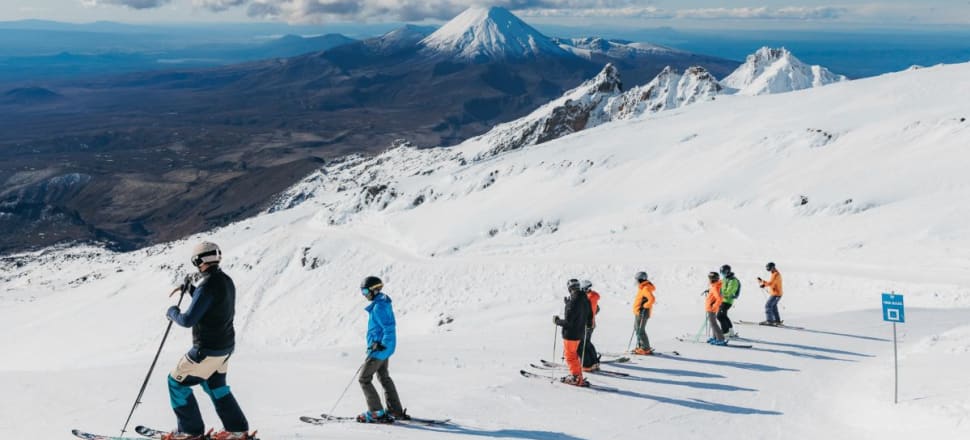
A value has been assigned to each life pass holder, which makes them potential kingmakers in an upcoming vote on the ski fields' future.
A group representing recreational users of the Mt Ruapehu ski fields says it has agreed to a deal with administrator PwC that makes life pass holders the largest creditors of Ruapehu Alpine Lifts, the company which operates the two fields and which went into voluntary administration in October 2022. That means skiers (and former skiers) could potentially decide the fate of the insolvent Turoa and Whakapapa fields.
There are about 14,000 life passes holders out there – enthusiasts who have put more than $45 million into maintaining and growing their ski fields since RAL was formed in 1953. The Ruapehu Skifields Stakeholders Association (RSSA) has access to between 5000 and 6000 of these pass holders, which it believes is a decent chunk of the people who regularly head to the slopes.
The deal with PwC sets a value for each life pass holder and this makes the group as a whole the biggest creditor of Ruapehu Alpine Lifts.
READ MORE: * Cabinet set to break up Ruapehu ski fields for sale to investors * Give mountain a chance to recover, say Ruapehu iwi * Govt offers ultimatum to Ruapehu life pass holders: pay up or shut down
With size comes power – to potentially decide the future of the two fields.
At least four proposals will be put forward for a vote at a meeting expected to take place on June 13. Votes are understood to be weighted for both creditor value and number of creditors. Depending on how many pass holders actually vote, they could have a dollar edge, but because there are 14,000 of them, they are also far and away the biggest block.
Major creditors include MBIE, owed $15m at the time the administrators were appointed, and ANZ, owed $6m.
MBIE has since provided a $2m bridging loan and a loan of up to $6m to allow the administrators to maintain the fields until a new owner comes along.
RSSA chair Jason Platt said he couldn’t give Newsroom the exact value allocated to life pass holders due to a confidentiality agreement.
“What I can say is we've worked for the last three or four months trying to get a value on the life passes on behalf of the life pass holders and we've done all our own modelling and consulting on those figures."
Life passes were selling for more than $5000 in recent years.
“We've been negotiating with PwC, a figure has been settled on and that would make the life pass holders the largest group of creditors at the watershed.”
Platt said the majority of life pass holders surveyed said they would prefer the fields to continue to be a community-owned, with profits reinvested so the mountain survives for future generations.
Information around bids needs to be out to all creditors at least five days before the meeting, and while RSSA has its own bid in place to buy Turoa and Whakapapa, which would involve pass holders investing more money, Platt said they could vote for any proposal that they deemed best for all stakeholders.
“What we absolutely don't want to see is any bid which has not thoroughly been engaged with the stakeholders, which is purely for profit of a few individuals, and where the assets are given to them at a knockdown price.”
Platt said the Ruapehu fields have never been there just for a bunch of rich skiers – and the RSSA wanted to keep it that way. “This is not like the South Island or international fields; this is a very big club field.”
He said the mountain and its clubs provided opportunities to low-decile schools and other groups that might not otherwise be able to go skiing or experience snow.
“The most important thing is we want it to be experienced by as many people as possible – locals, underprivileged kids, people from Auckland, you name it.
“What we would not want to see is this becoming another Cardrona.”
MBIE is understood to have identified two preferred bidders – one to buy Whakapapa and one to buy Turoa.
It's thought Ohakune business couple Christine and Greg Hickman, backed by the property developer Cameron Robertson, have been given the nod by officials to buy the Turoa ski field.
The big Whakapapa field, which attracts thousands of Auckland and Waikato skiers every day in snow season, has attracted the interest of a group fronted by local industry veteran Dave Mazey – the ski field boss who previously merged the two fields when Turoa was last in administration.
Mazey's bid is financed by The South Island Office, a Christchurch-based investment group led by another ski industry veteran, Tom Elworthy, and composed of investors James Stringer, Sam Rofe and Rob Farrell.
Both RSSA and non-preferred bidder and former RAL director John Sandford (who just wants to buy Turoa) have expressed concern about MBIE's preferred bidders' lack of engagement with local iwi and problems with the bidding process as a whole.
In a letter to MBIE’s regional economic development and investment unit Kānoa and PwC, Sandford said Kānoa head Robert Pigou had agreed his offer was “very good” in terms of community engagement/social licence, but there were concerns about financial aspects.
“When asked why we hadn’t been asked to address those concerns, we were told that there wasn’t time to do so.”
Any successful buyer would need approval from the Department of Conservation and local iwi.
Mt Ruapehu is the subject of a major ongoing Treaty claim, and iwi indicate they will expect far better engagement from the preferred bidders. They will set high standards for the mountain's environmental management.







